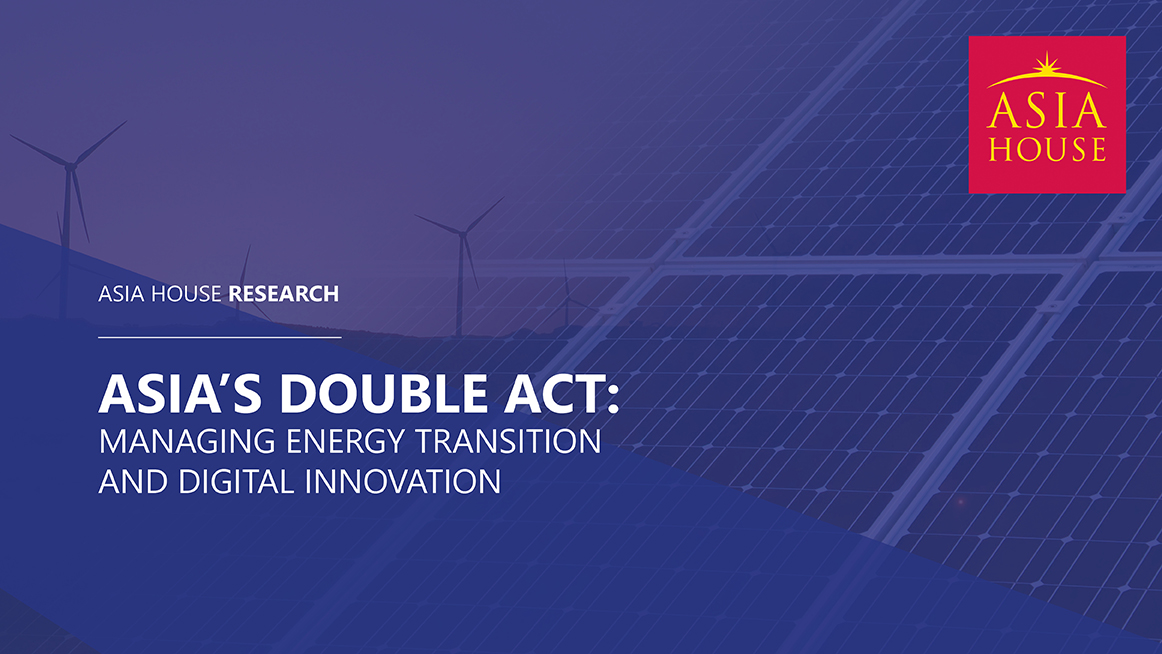Driving commercial and political engagement between Asia, the Middle East and Europe
Driving commercial and political engagement between Asia, the Middle East and Europe
Driving commercial and political engagement between Asia, the Middle East and Europe

Digital innovation, and sector-specific digitalisation, are crucial to transforming Asia’s energy systems in order to meet carbon reduction targets and to achieve sustainable and resilient economic growth. In a new Asia House research report, we explore how digital technology in its various forms – digital assets, data algorithms and AI – can help the private sector and government build new products and services that will spur energy transition.
REPORT AUTHOUR
 Phyllis Papadavid, Head of Research and Advisory
Phyllis Papadavid, Head of Research and Advisory
Phyllis Papadavid is a leading international economist and financial strategist with extensive research experience across the private and public sectors. She leads Asia House’s Research and Advisory work, driving the organisation’s research agenda and directing projects.
Battling climate change constitutes a serious dilemma for policy makers, who face the challenge of mitigating its long-term consequences while still supporting economic growth in the short and medium term. This is felt more acutely in emerging economies, hard hit by the COVID-19 pandemic. Crucially, digital technologies have the potential to reduce global emissions by about two-thirds, according to the IPCC. Digitalisation facilitates both climate change mitigation (reducing GHG and CO2 emissions) and climate change adaptation. In Asia in particular, the advent of the fourth industrial revolution has seen the increased application of digitalisation in agriculture and finance, which has notably increased climate resilience and domestic energy transitions. Challenges remain in several of Asia’s economies, including around food and water security, improving power infrastructure, and mobilising adequate finance to facilitate energy transition. This paper examines some of the key digital pathways on a country-by-country basis to overcome climate challenges and to optimise the opportunities offered by digitalisation in support of climate change adaptation.
Key takeaways
